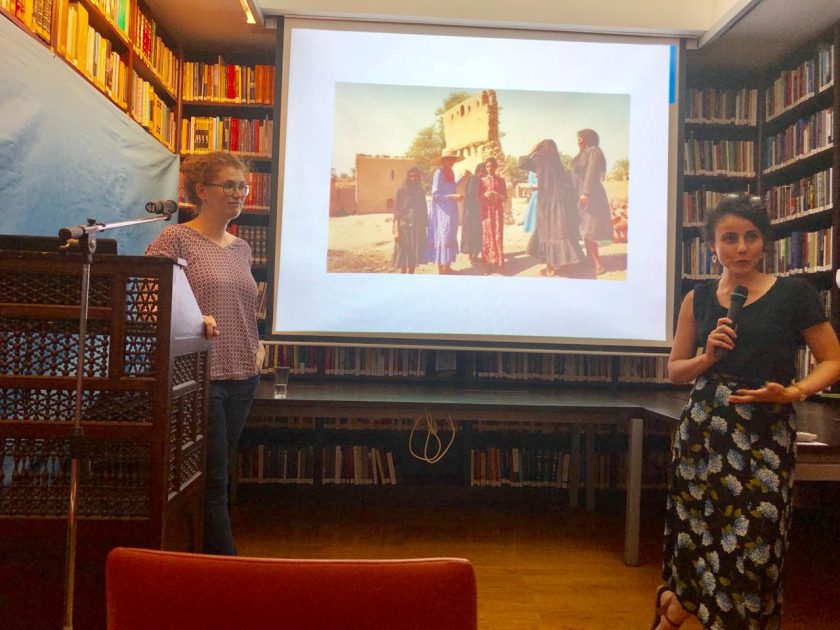
Social media may have allowed even couch potatoes to dabble in the documentary genre but Ateyat El Abnoudy, a revolutionary Egyptian filmmaker, revealed her creative genius when she turned a movie about a sandwich into a gripping emotional journey.
At a lecture hosted by The Netherlands-Flemish Institute in Cairo on September 13, Research Fellow at the University of Exeter Stephanie Van De Peer said El Abnoudy impacted Egyptian filmmaking by introducing the voice of the less privileged into a medium that has been historically dominated by the upper middle class.
El Abnoudy’s filmmaking style stands out because she resists the temptation to use voice-overs or talking heads, which are very common feature in documentaries. She lets her audience make up their own minds about her subjects and reserves her own personal views, allowing the scenery, people and environments in the films to narrate the story.
El Abnoudy left her footprint on Egyptian cinema through socially and politically critical documentaries that resonate as much today as they did when they were first made several decades ago. Her film production company, Abnoud Film, was the first to be launched by an Egyptian female, making her a role model for many rising female filmmakers over time.
“The documentary form is one of the most exemplary ways of writing history as it contains that vital combination of sound, image, color and people’s testimonies on the age in which they live,” Van de Peer quoted El-Abnoudy in her lecture.
Known as the ‘mother’ of Egyptian documentary making, El Abnoudy has been said to put the camera in the mud of Egypt. Because of her critical eye and her coverage of the less glamorous parts of Egyptian life, she has very often been the victim of censorship and criticism in Egypt.
According to Van de Peer’s book Negotiating Dissidence, which focuses on the pioneering women of Arab documentary, there was a huge emphasis between the 1940s and 1980s to display Egypt as a country with an abundance of cultural wealth, natural beauty and richness.
Van de Peer said El Abnoudy’s films defied the Farouk Code, the first institutionalized censorship law in Egypt.
It banned images of soiled alleys, of hand and donkey carts, copper cleaners, poor farmhouses, women wearing enveloping gowns – anything that shakes the social order and led to revolutions, demonstrations and strikes.
Within that heavily regulated artistic environment, El Abnoudy’s movies presented a harsher and more accurate version of reality.
Egyptian censors were not pleased and banned many of her movies.
However, she found success in screening her films abroad, particularly in Germany where she was given many awards.
El Abnoudy’s films have been exhibited at festivals worldwide, on television in Europe and the Arab World, and at special screenings of retrospectives of her work. Her response to the hostility she faced was simple and direct.
“They don’t see the human aspect of their people and of my films,” she once said.
Ultimately, it was the people who were always prominent in her work, but external pressures and restrictions left her having to negotiate her own perspectives on her films.
El Abnoudy’s most notable movies are Horse of Mud (1971), Sad Song of Touha (1972), Permissible Dreams (1983), Rawya (1995), Girls Still Dream (1995), Democracy Days (1996).
“I look at life in a poetic way. I love to live and I think that poor people in my country are all doing their best to work and to create life,” El Abnoudy says of her inspiration.
“I try in all my films to convey this love of life, even if the people live in very poor conditions. I treat them with great respect. I love to see their faces on the screen. I come from the working class, but film is a middle-class medium, so you have to be strong to maintain your relationship to your class.”
The Netherlands-Flemish Institute holds a lecture to acknowledge filmmaker Atteyat El Abnoudy Yara El Hashemy